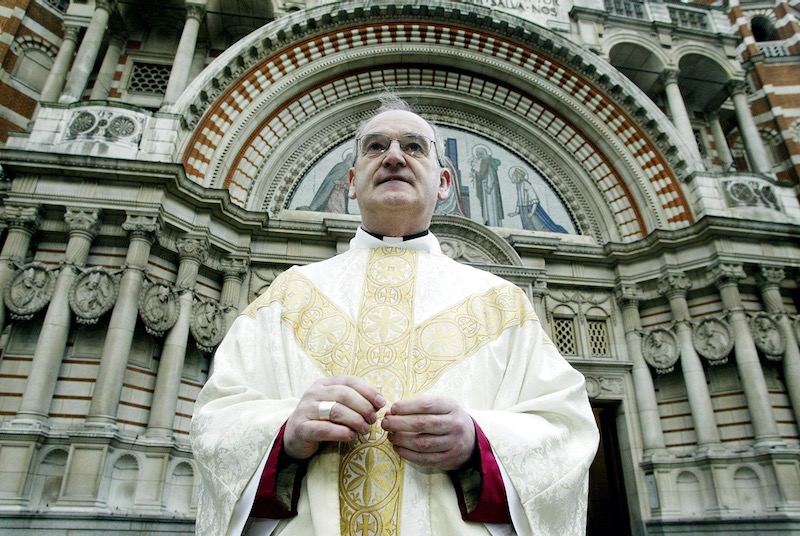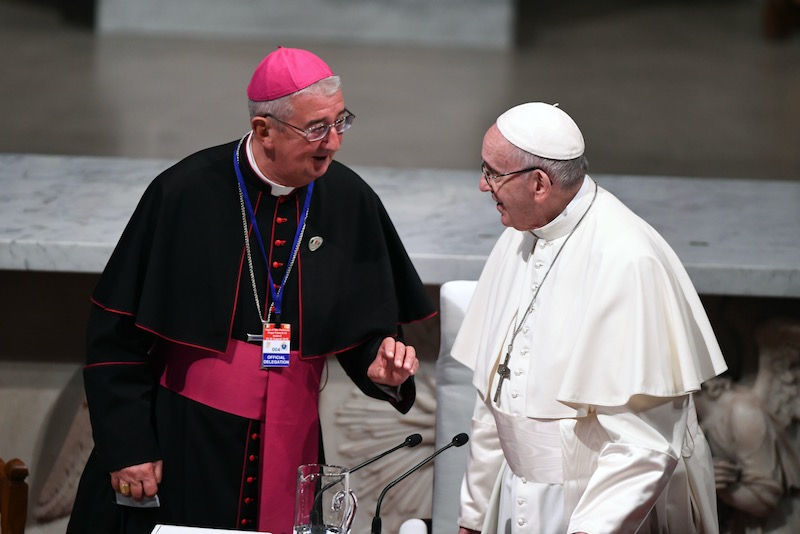Archbishop Diarmuid Martin of Dublin has warned that some anti-mask protestors opposed to Covid health regulations were behind an attack on him as he attended an Islamic gathering in Dublin in July.
The Archbishop revealed how protestors opposed to his participation in a Muslim event celebrating the Festival of Eid, attempted to overturn his car and screamed at him, calling him Satan while others sang hymns to Our Lady.
The shocking incident occurred outside the GAA’s Croke Park stadium, where the Archbishop and other religious leaders had been invited by the Muslim community in Ireland to give an address at a socially distanced celebration.
In an online address to the Dublin Council of Churches last week, Archbishop Martin said there are “voices out there who do not understand, or do not want to understand, what religious tolerance means in the Ireland of today and that should concern all of us”.
He highlighted another trend among some anti-maskers which seeks to negate the threat of the Coronavirus under the guise of respecting individual liberties.
Speaking to Newstalk Radio’s Pat Kenny Show he said, “Some of those who take part in these anti-mask protests: these are the ones who attacked my car when I attended an Islamic gathering at Croke Park and were extremely aggressive and negative, calling me Satan.”
He said they were small well organised groups. “What worries me is they may attract and draw in to their strange ideology young people who are frustrated and aggressive.”
The Archbishop warned that what had happened in other parts of Europe where neo-Nazi parties had exploited disaffected young people could happen in Ireland.
Speaking to RTE Radio, he said that what worried him and should be of concern to all was the religious intolerance evident at the protests. “There is a level of negativity, violence and generating of fear. It is anti-immigrant. Just at a moment when we don’t need negativity and fear.”
In his online address, the Archbishop of Dublin acknowledged that the pandemic had brought specific challenges for Churches, including leaving believers unable to gather for religious services for lengthy periods.
Nevertheless, he said that the closing of Churches, especially at crucial moments or to protect vulnerable people, could be justified, but that such measures should be limited to the minimum period necessary.
For Catholics, he stressed, Mass and the Sacraments “are not simply ‘gatherings’ of people, but profound expressions of who we are as a Church. For parishes and individual Catholics, the loss of these spiritual supports can be a source of great anxiety and fear and can have a detrimental impact on their overall health and well-being.”
In his online presentation, Archbishop Martin said it was important that society remember the contribution that public religious practice makes to the spiritual and personal wellbeing of believers. “Religious leaders can be powerful agents of fostering responsible behaviour,” he stated.
However, he quoted the Secretary General of the Synod of Bishops who had warned that, “During the pandemic a certain clericalism emerged. We witnessed a degree of exhibitionism and pietism that has more to do with magic than an expression of true faith”.
Looking to the future, he said society is facing serious problems of unemployment and that new mental health challenges will emerge and that job losses could lead to suicide across all sectors of society. “Lockdown leads to limited human interaction that then depletes wellbeing.”
He warned his fellow Church leaders of the danger of Churches becoming gripped by their own problems and failing to give leadership.
“There will be no rushing back to Church services. The inability to attend public worship has led to creative use of social media to make services available online. There has been less emphasis on fostering the ways in which the encounter with Christ can be fostered in daily life. When we reflect on situations in which people have been or are today prohibited through persecution to attend public celebrations, the faith is maintained in other ways especially through fostering faith in the family.”



 Loading ...
Loading ...